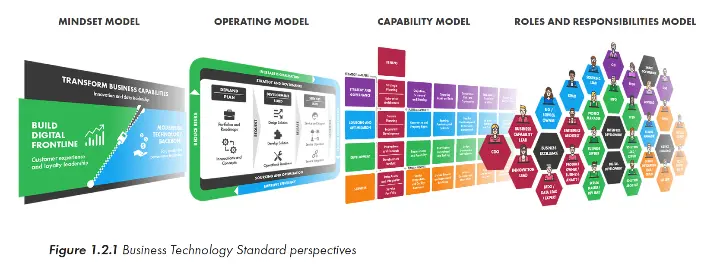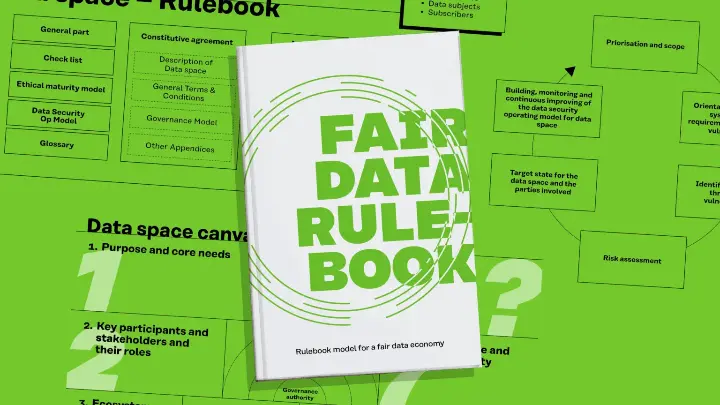Practical Data Management Frameworks for Data Leaders
During the afternoon sessions, selected speakers provided us again a wealth of insightful lessons learned based on their practical experiences across various industries, such as traffic, pharmaceuticals, and agriculture.
First, Dr. Seppo Kuula, CEO, Cloud1 Oy kicked off the afternoon sessions by emphasizing the critical importance of data as a business asset. He highlighted how data management has evolved through several hype cycles, including trends such as data warehousing, master data management, and cloud transitions. Despite significant investments in software, these efforts did not transform companies into data-driven enterprises. According to Dr. Kuula, this time is different because Artificial Intelligence (AI) will fundamentally change business and society, and it is built on data. To leverage emerging AI capabilities, companies must shift their investments toward data that can be codified into and utilized with AI solutions, rather than relying solely on technological upgrades.
To become truly data-driven, companies need systematic processes and practices to transition from ad hoc, silo-based data management to an enterprise-wide capability. This focus on data is distinct from software or digitalization efforts, which primarily address tools built for functional purposes rather than data as a representation of business knowledge.
Practical Governance Frameworks for Intra- and Cross-Enterprise Collaboration
During the afternoon sessions, we were introduced to four practical frameworks that can assist companies on their journey towards becoming data-driven enterprises. These frameworks address two complementary objectives, and a single enterprise might adopt all of them due to their synergistic nature.
Data-Driven Enterprise:
- The Business Technology Standard (BT Standard) by BT Forum and the Data Management Body of Knowledge (DMBOK) by DAMA International can help organizations establish more systematic, effective, and agile internal governance, development, and operational models.

Figure 1: BT Standard is a modular framework that provides practical materials for setting up a systematic business-driven business-technology-data operating model.
Data-Sharing Ecosystem:
- The Fair Data Economy Rule Book by Sitra and Model Terms and Conditions for Data Sharing by Technology Industries of Finland provide systematic methods with rule sets and templates for organizing data sharing between enterprises.

Figure 2: The Fair Data Economy Rulebook provides agreement templates and tools to facilitate the creation and integration of cross-enterprise data sharing networks.
Minna Oksanen, President, DAMA Finland ry introduced the DMBOK and its certification system, created by the international DAMA network. This vendor-independent knowledge base serves as a comprehensive catalog of concepts, frameworks, methods, and issues covering essential data management topics.
Katri Kolesnik, President, Business Technology Forum presented the BT Standard, a broad set of formalized management practices, tools, and organizational structures for aligning business and technology governance. Designed to optimize technology use across the enterprise, its 15 guidebooks are available as open source without any license fee. Initially developed to improve collaboration between business and IT, the BT Standard has expanded to cover data management capabilities, partly based on DAMA DMBOK guidelines.
Practical Experiences from the Best Practice Framework Users
During the afternoon panel discussion, Minna-Liisa Siltala, Head of Product Data Governance at Orion Corporation, shared how the company utilized the BT Standard during their master data management transformation. According to her, organizations can significantly benefit from readily available best practices and templates, such as those provided by the BT Standard, instead of creating solutions from scratch.
Janne Lautanala, Chief Ecosystem and Technology Officer, Fintraffic discussed how they created a traffic data ecosystem through public-private collaboration involving more than 200 leading mobility organizations. Guided by the Traffic Data Rulebook, a simple many-to-many legal agreement, this ecosystem defines the rules for data sharing, provision of data-driven services, and collaboration governance. Lautanala, just like Siltala, emphasized the importance of using readily available templates, citing Sitra’s Fair Data Economy Playbook as a good starting point. An alternative rule set to the playbook might be the Model Terms and Conditions for Data Sharing, presented by Jussi Mäkinen, Director, EU Regulation, Teknologiateollisuus – Technology Industries of Finland.
Jaana Sinipuro, CEO, DataSpace Europe Oy described how they piloted similar cross-enterprise data sharing in the agriculture sector, involving independent farmers, governmental authorities, and research institutes. As Europe’s first officially registered data intermediation service, their vision is to be the leading data intermediary, enabling data ecosystems in line with European regulatory obligations and values.
The summit concluded with a keynote by Marko Turpeinen, CEO, 1001 Lakes Oy, who delivered a comprehensive overview of the European Data Strategy, its historical objectives, subsequent data acts, the current status of the European data economy, and recommendations for Finland to become a future leader in data-driven business and society. Interestingly, Finland has been a pioneer in fair and human-centric data management for over a decade, exemplified by the founding of the MyData Global network, represented at the summit by Teemu Ropponen, Director of Growth, MyData Global. The MyData movement has significantly influenced the promotion of individual rights to data and data intermediation services, which have been incorporated into European data regulations such as the General Data Protection Regulation (GDPR) and the Data Governance Act (DGA).
Conclusion
The CDOIQ Nordic Community Pre-Summit, organized by ICT Leaders Finland ry, DAMA Finland ry, and MyData Global, provided invaluable insights for organizations striving to become data-driven enterprises. A clear, shared vision is crucial, and engaging individuals who understand and support this vision is essential. To align the entire organization towards this common goal, integrating the governance, development, and operations of business, data, and technology into a unified model is necessary. Beyond internal operations, truly data-driven organizations should become active participants in broader supply chain ecosystems by developing shared data governance with partners to create a collaborative data-sharing environment. Utilizing established best practices, such as the ones presented during the summit and as demonstrated by Fintraffic and Orion, can accelerate maturity improvements and reduce trial-and-error costs while enhancing data management capabilities. Finally, organizations should take advantage of European data regulations and investment programs that are aimed to steer them towards data management best practices and meet ESG reporting requirements, driving sustainable growth and improved profitability.
The Forthcoming CDOIQ Nordic Symposium 2025
This Community Pre-Summit was a pre-event for the CDOIQ Nordic Symposium 2025, that will be an exceptional opportunity for Nordic data leaders to learn from their peers, improve their careers and support their employers for three reasons.

We recommend everyone to promote the forthcoming CDOIQ Nordic Symposium for all data and digitalization leaders and strategists – regardless of their titles. Next year, they can experience an exceptionally high-level program and get a unique honour to be one of the founding participants establishing a new peer community for data leaders in the Nordic region.
The event will be moving between universities around the Nordic region for decades to come but now it is the only time that you can become the Original Founding Participant/Speaker/Sponsor of the new CDOIQ Nordic Data Leader Community.
Networking: The CDOIQ is a global community of data leaders, for data leaders, by data leaders born out of the MIT research and industry programs.
Knowledge: In the CDOIQ events, data leaders share their experiences, lessons learned, and cutting-edge ideas around the globe.
Impact: The CDOIQ mission is to strengthen the role of CDO, improve data leaders career progress, and help organizations gain more value from their data.
Read more or register to the Symposium here (Link)
The CDOIQ Nordic Community Pre-Summit was organized by CDOIQ Nordic Community Partners, such as ICT Leaders Finland ry and DAMA Finland ry, theme associations of the Finnish Information Processing Association, and MyData Global, an award-winning international association gathering data activists who aim for a more fair, sustainable, and prosperous digital society for all. The event was hosted by Aalto University Executive Education and Professional Development and sponsored by Cloud1 and Workday

The author, MSc Sami Laine, is a Senior Advisor at Aalto EE, where he is currently spearheading the mission to bring the world-renowned CDOIQ Symposium to the Nordics in 2025. During his over 20 years career, he has worked in data management practitioner, consultant, researcher, and teacher roles in several business sectors. Throughout his career, Sami has been an active advocate for promoting quality and ethical perspectives in data management and business decision-making, as recognized by his nomination for the DAIR Awards AI Ethics Professional of the year in 2022. He has been a long-time president and board member of the DAMA Finland ry and a program committee member of the MIT CDOIQ Symposium.
Appendix
Recommendations for becoming a Data-Driven Enterprise
- Create a Shared Vision:
- A clear and shared vision is crucial for organizations aiming to become data-driven.
- Engaging individuals who understand and support this vision is essential.
- Align Organization:
- Align the entire organization towards a common goal.
- Integrate governance, development, and operations of business, data, and technology into a unified model.
- Participate in Broader Ecosystems:
- Become active participants in broader supply chain ecosystems.
- Develop shared data governance with partners to create a collaborative data-sharing environment.
- Utilize Established Best Practices:
- Use best practice methodologies like presented during the summit, such as BT Standard and Fair Data Economy Rule Book, and used by organizations like Fintraffic and Orion.
- Proven frameworks with readily-available materials and templates will reduce trial-and-error costs and accelerate development while improving data management capabilities.
- Leverage European Data Regulations:
- Take advantage of European data regulations, because they steer organizations towards data management best practices.
- Resulting data capabilities help to meet ESG reporting requirements, drive sustainable growth and improve profitability with better supply chain wide business collaboration.